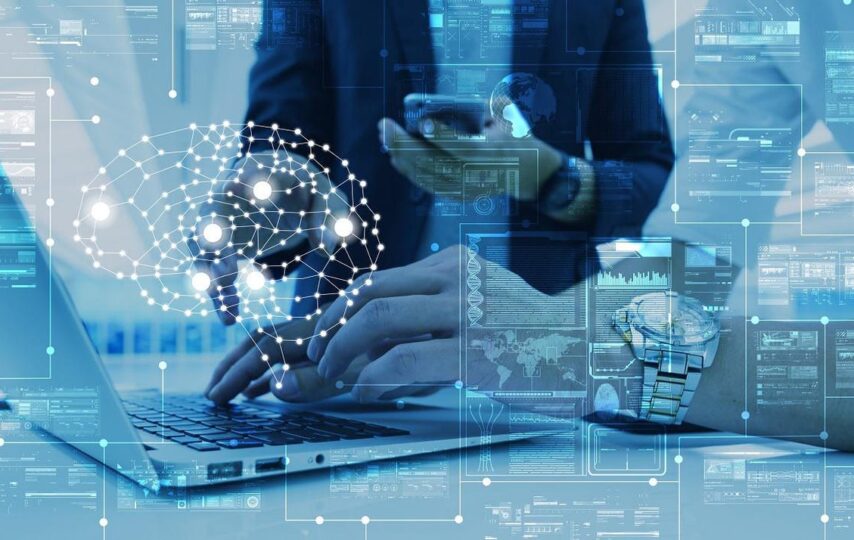Automating processes, managing robotics, enhancing data analytics, and providing additional software are just some of the many applications for AI resources. These and other benefits make AI an essential new resource for today’s corporate world. Below are five ways in which AI can boost your business practice.
1. Enhanced Inventory Management
Keeping track of inventory involves a wide variety of tasks, any one of which can seem impossible. Owning a store or warehouse necessitates keeping precise inventory records, restocking shelves, and monitoring all moving parts.
Regarding inventory management, companies have traditionally relied on a retrospective approach. However, AI optimization has enabled companies to employ predictive analysis instead, which has dramatically benefited inventory management. Business owners may get their hands on critical data about the forces shaping consumer demand and predict what products will be popular in the future.
Because of the way machine learning works, the more a business uses AI, the more it may learn about its customers and website visitors. Retailers may better anticipate future and current inventory demands with the assistance of artificial intelligence developments.
2. Strong Personalization and Brand Loyalty
Over sixty per cent of customers need a tailored encounter. However, most companies, especially smaller ones, struggle because personalization requires time, money, and effort. Organizations must chart customer journeys to foresee the best opportunities to engage customers and boost revenue.
If you want to personalize your service, you need to be able to anticipate your customers’ wants and needs. It is a mammoth undertaking, but one that AI is well-suited to do. Products that consumers could buy in the future can be predicted by brands utilizing data such as purchase history and social media engagement.
Thanks to these discoveries, the firm can provide individualized services. To completely automate this procedure, artificial intelligence may first recognize decision-making tendencies, then construct personas depending on these, and then push material that the AI has learned is most beneficial for each character.
3. Minimal Errors
It is impossible to eliminate human mistakes. For that reason alone, we must work to stop them. When employees make mistakes, it may devastate a company’s bottom line and reputation. Emotional and physical distractions in the workplace can significantly impact workers and lead to costly mistakes.
Fewer hands in the pot equal less room for human error. The application of AI in the workplace paves the way for quality control, with tasks being carried out following predetermined criteria and the gaps in accuracy created by human mistakes being filled in. It keeps everything in sync, makes handoffs easy, and eliminates bottlenecks common to manual procedures.
4. Save on Time and Costs
Many companies are using AI tools to cut costs and maximize efficiency. The ability to digitize data partially. With these additions, they can better manage their time and energy to tackle more intricate tasks.
But, when a company uses AI tools, productivity increases. It will reduce the company’s operational expenses and allow workers to focus on higher-priority tasks.
5. Lower Cybersecurity Threats
Businesses are increasingly recognizing the value of becoming data-driven, increasing the importance of data’s intrinsic worth. Unfortunately, it implies a greater temptation to steal sensitive information, especially when a significant financial reward or social/political pressure is involved.
Utilizing AI with predictive and analytical capabilities can assist businesses in securing themselves from hackers and cybersecurity assaults by predicting how these attacks will and what might motivate the cybercriminals.
For example, Neural Networks can continuously learn from large volumes of raw data and do several tasks simultaneously. They have low error rates and are reliable computing systems with high pattern recognition and forecasting abilities. In particular, their ability to learn from raw data makes them well-suited to thwarting cyberattacks, which can take numerous forms.
Another intriguing method of cybersecurity, albeit with far less flexibility, is expert systems. The systems can only complete specific tasks specified by human skill.
They incorporate and learn from carefully curated data sets to mimic human specialists’ thinking. These technologies excel at resolving complex cybersecurity issues that we are familiar with but lack the resources to tackle on our own.
Conclusion
While some companies may find AI helpful across the board, others may find it unnecessary until they reach a specific scale. No matter the case, remember to ease into the use of AI tools. Successfully applying a new innovation will take time, effort, and resources. Adopting the new technologies will also involve a period of adjustment for the staff.





